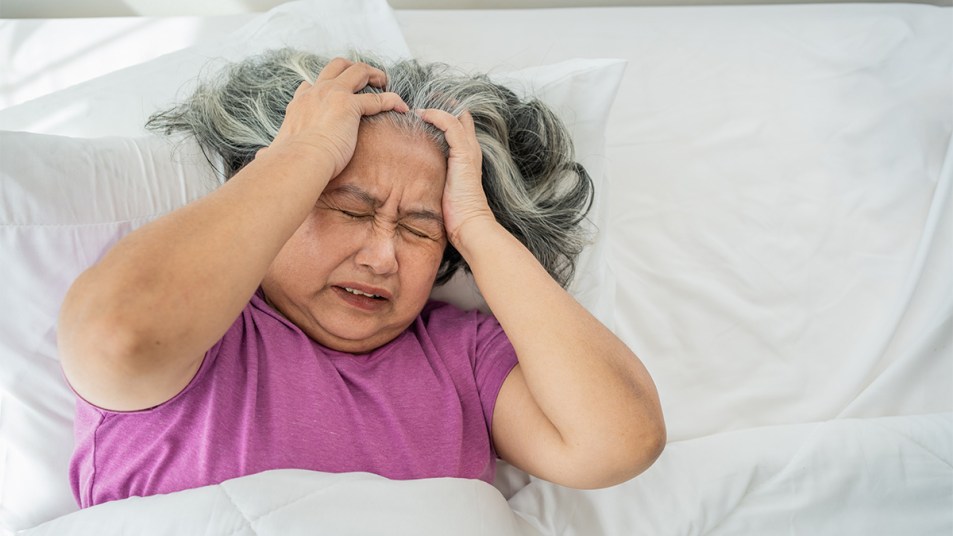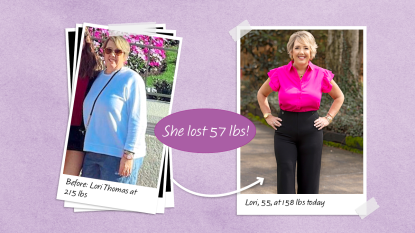What Causes Teeth Grinding During Sleep — And How Do You Stop It?
This could be the culprit of your A.M. headaches and jaw pain.

Now that spring has sprung, experiencing seasonal allergies, upticks in stress, and shorter sleep cycles is the norm. All of these effects can trigger night time jaw clenching and teeth grinding, which is better known as bruxism. Most people with this condition don’t even realize they’re grinding or clenching. However, they usually wake up with painful headaches and jaw pain — ouch! Knowing how to stop teeth grinding when you’re sleeping helps reduces nagging pain in the morning. Better still, you’ll get a better night’s rest when you no longer suffer with this sleep disorder. To get much-needed relief from nighttime teeth grinding and jaw clenching, use these three remedies.
#1: Try a spicy nasal spray.
According to the experts at Eagle Harbor Dentist, nasal congestion from seasonal allergies raises your risk of teeth grinding. How? As you sleep, your body tries to drain congestion in sinuses and ear canals — your sleeping brain, which knows that jaw clenching relieves built-up pressure in the same way chewing gum does on a flight, pitches in to help.
The fix: A 2019 study found that using a nasal spray that contains capsaicin, an anti-inflammatory compound derived from red peppers, nixed sinus congestion for many participants.
#2: Slowly tap your temples.
For people with bruxism, daytime stress is a common cause of nighttime grinding. So, when you feel tense, tap your temples for 30 seconds. This type of tapping — called Emotional Freedom Technique (EFT) — calms the brain by applying light pressure on your meridian points, which are energy hot spots. Research in the Journal of Evidence-Based Integrative Medicine suggests EFT curbs levels of the stress hormone cortisol. Overall, this benefit may have a positive impact on thwarting grinding. For a tutorial, search “EFT for bruxism“ on YouTube.
#3: Tweak your bedtime snack.
Research published in the journal BMC Oral Health found that sleep bruxism was associated with a vitamin D deficiency, which negatively affects the jaw’s musculoskeletal function. To dodge trouble, a small study suggests that taking vitamin D supplements could improve sleep quality for people with sleep disorders. That said, always speak with your doctor before starting a new supplement.
This content is not a substitute for professional medical advice or diagnosis. Always consult your physician before pursuing any treatment plan.













